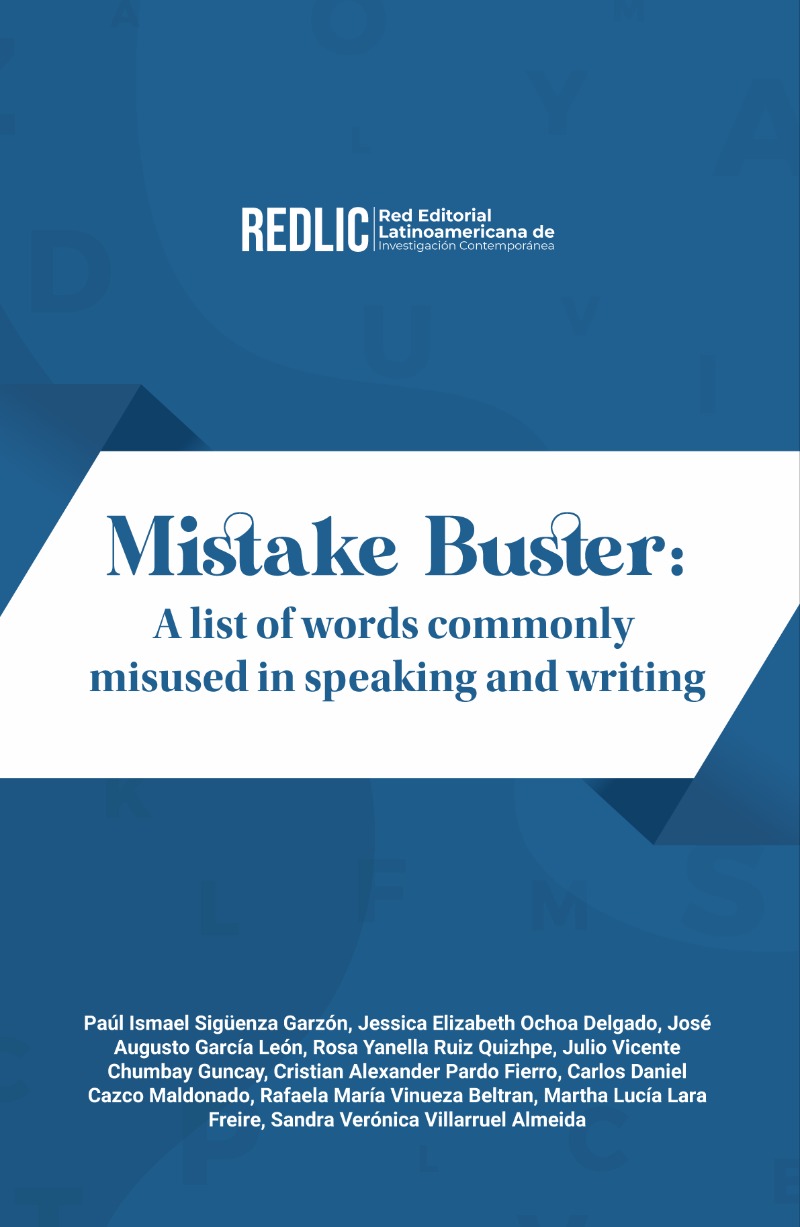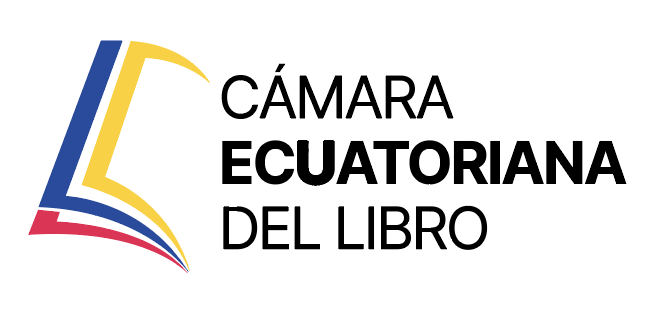
Mistake Buster
A list of words commonly misused in speaking and writing
Cazco Maldonado, Carlos Daniel
Lara Freire, Martha Lucia
Siguencia Garzón, Paúl Ismael
Ochoa Delgado, Jessica Elizabeth
García León, José Augusto
Ruiz Quizhpe, Rosa Yanella
Chumbay Guncay, Julio Vicente
Pardo Fierro, Cristian Alexander
Vinueza Beltrán, Rafaela María
Villarruel Almeida, Sandra Verónica
Editorial:Red Editorial Latinoamericana de Investigación Contemporánea REDLIC S.A.S.
Materia:Diccionarios de inglés
Público objetivo:Enseñanza universitaria o superior
Publicado:2024-10-19
Número de edición:1
Tamaño:6,19Mb
Soporte:Digital
Formato:Pdf (.pdf)
Idioma:Inglés
Libros relacionados
UPHILL – BEGINNER A1.1 - Student’s Book - Cevallos Bravo, Jorge Bienvenido; Anchundia Macías, Pablo Junior
Diccionario Chicago Junior Internacional Ilustrado
Diccionario New Grand Chicago Universal - económico
My Picture Dictionary - Equipo Pedagógico Maya Ediciones
Reseña
PROLOGUE
The following Pedagogical Guide addresses the growing needs of students and teachers in English language programs at universities in Ecuador. These programs face the challenge of achieving the required level of English proficiency while also mastering academic vocabulary specific to the teaching profession. Students generally aim to develop the four core skills—reading, listening, writing, and speaking—while expanding their academic vocabulary.
As future English teachers, academic vocabulary is crucial for effective oral and written communication, as well as for various professional activities such as teaching methods, research, and pedagogy-related coursework. Given the differing university admission requirements, students enter with varying levels of language skills and preparation. Regardless of their prior knowledge and abilities, one common expectation is the use of academic English in professional contexts, which can be challenging for many students.
Expressing oneself academically during project presentations or teaching lessons often involves issues such as interference from their native language (Spanish), incorrect verb conjugations, improper use of equivalents, and difficulties with fluency and spontaneity. This didactic guide aims to address these challenges by providing a comprehensive academic lexicon to support undergraduate students. It offers vocabulary that enhances both oral and written communication, promoting greater fluency and spontaneity.
The primary goal of this pedagogical guide is to furnish students in English programs at universities across Ecuador with a valuable resource for finding useful words, phrases, and expressions needed for presenting projects, completing assignments, and engaging in various oral and written activities. By focusing on words, expressions, and phrases relevant to their professional subjects, this guide will help students develop the necessary oral and writing skills.
The guide also includes practical suggestions and advice on how to effectively present projects, write essays, document teaching observations, participate in group discussions, teach lessons in partner schools, and prepare their undergraduate thesis. This material is expected to significantly benefit students at advanced levels of tertiary education. Addressing common mistakes—often made unintentionally or due to carelessness—this guide aims to provide a learning tool that facilitates improvement over time. The dictionary will not only be a valuable resource in Ecuador but is also anticipated to benefit many English as a Foreign Language students across South America.
Carmen Maricela Cajamarca Illescas




